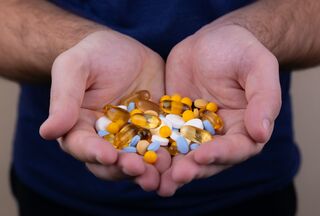Addiction
Are We Overusing the Word "Addiction?"
It's time to separate everyday language from clinical language.
Posted May 28, 2021 Reviewed by Ekua Hagan
Key points
- The everyday language of addiction differs from clinical language. We need to understand the difference to better treat psychological issues.
- One of the biggest misconceptions is "sex addiction." Sometimes this can be an emotional regulation problem.
- True clinical addiction requires specific treatment and therefore should not be used for non-addiction issues.

Addiction is a popular term used widely by the public about anything. "I’m a shopping addict," "I’m a chocolate addict," "I’m a coffee addict," "I’m a Netflix addict," and so on.
Describing our penchant for an activity as an "addiction" can be humorous and part of everyday conversations. Amongst friends, I happily describe myself as a "coffee addict," a "cheese addict," and a "book addict." But, in my psychotherapy practice with my clients, I don’t take this word lightly, because, clinically, addiction is a specific disease that causes great damage.
"Feeling" addicted is not the same as true addiction
When clients are used to the everyday language and present in the therapy room with a self-diagnosis of "addict" when they are not, it is my duty to inform them about the difference between an addiction and other issues that they may have that feel like an addiction but isn’t. I believe that as psychotherapists we have the duty to tell our clients what are the terms, diagnosis, and clinically endorsed conceptualisation of presenting issues so that they can make their informed consent about their treatment.
I think it’s important that therapists know what they’re treating. Addiction requires a specific treatment, much like cancer requires its specific treatments. If you have a cough, I’m sure you’d want your doctor to be knowledgeable enough to find the cause of the symptom and know the difference between a cold and lung cancer so that they can offer you the right treatment. The same applies to psychotherapy. Treating a problem that is not addiction with addiction treatment is like treating a cold with chemotherapy.
The truth about "sex addiction"
One of the biggest misconceptions in the field of psychotherapy is the term "sex addiction." It is not clinically endorsed and has been rejected from diagnostic manuals. The current agreed definition for the problem is "compulsive sexual behaviour disorder" (CSBD), which is categorised under impulse control, not addiction. It is important to know because although the symptom might look and feel exactly like an addiction, knowing it is not an addiction means that more effective treatments can be offered to clients without unduly pathologising them with a "disease" label.
I hear people say that therapists invalidate their struggles if we mention that "sex addiction is not clinically endorsed." I disagree. I think we’re doing the opposite. We are much more curious about these struggles and want to understand them better so that we can treat them better. In fact, challenging the old-fashioned term "sex addiction" and replacing it with what is evidence-based and clinically endorsed will help people more.
The clinical definition of addiction
Addiction is a dependence on external chemicals that the brain isn’t designed to support (except gambling disorders). Dependence on our own natural brain chemicals isn’t a disease.
We all depend on things and people in order to survive. We depend on relationships, connections, thrill, fun, laughter, food (good food and junk food), and more, in order to punctuate our lives and give them some colour. Sex is a great source of feeling alive and having a greater sense of self. So, yes, we absolutely depend on sex — as well as lots of other things — in order to live well. All of these pleasurable, life-affirming activities flood our brain and body with feel-good chemicals, and that’s totally normal and natural. If it wasn’t, everybody would literally be addicts in the clinical sense: addicted to seeing our children, hugging our parents, loving our partners, seeing our friends.
But just like everything else, we have to understand ourselves really well so that we can make the best choices for ourselves and how we can engage with life and what we depend on. For example, some people overly depend on other people to manage life because they don’t have enough confidence in themselves. The problem is not the dependence on those people but how they use it based on their understanding of themselves. Some people use sex to manage their entire emotional repertoire. The problem isn’t sex, it is the deficit of their emotional regulation skills.
Calling anything an addiction is actually invalidating those who truly suffer from a real addiction. It is common sense to me that we should only use an addiction treatment for real addictions. Using it for other things that are not addictions doesn’t seem logical. So, let’s not be confused between our everyday language and our clinical language, and let’s not lose our common sense.


